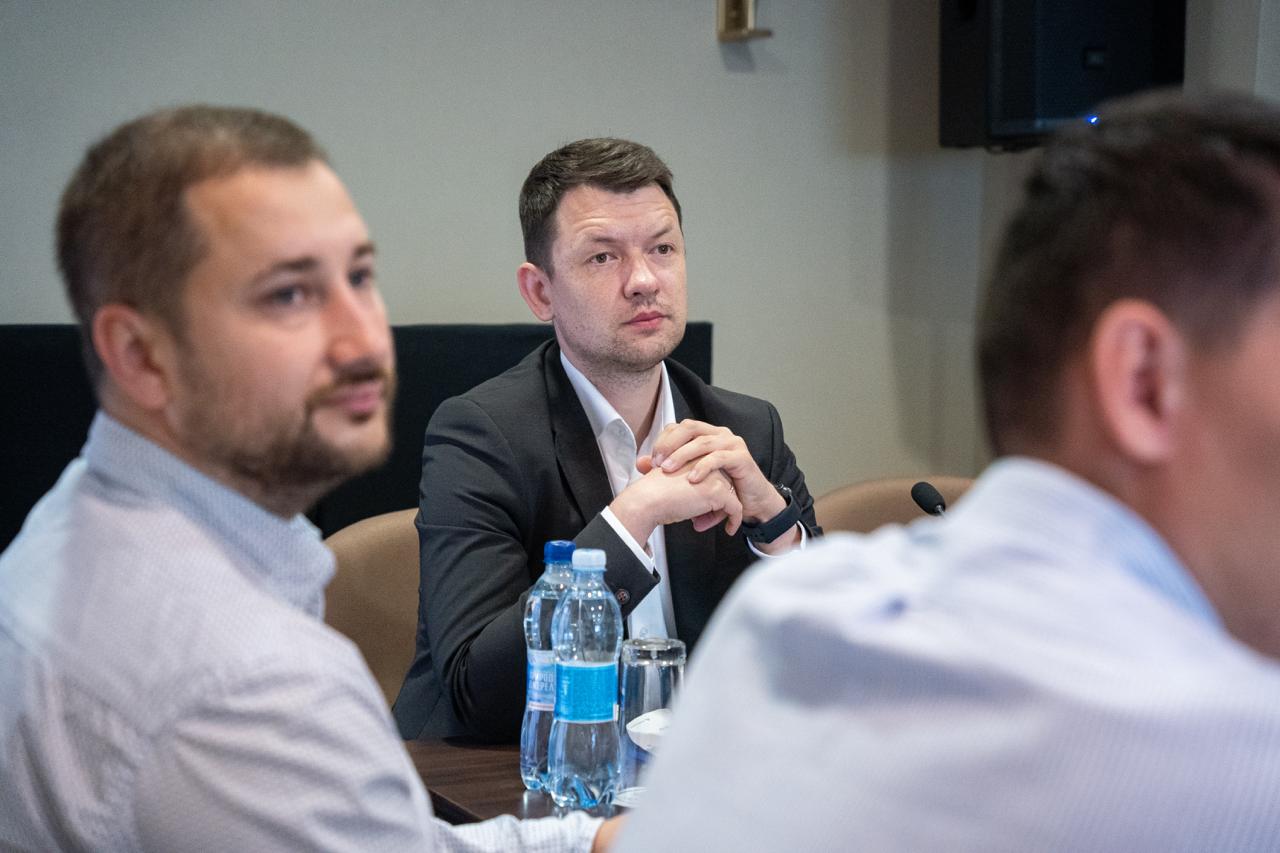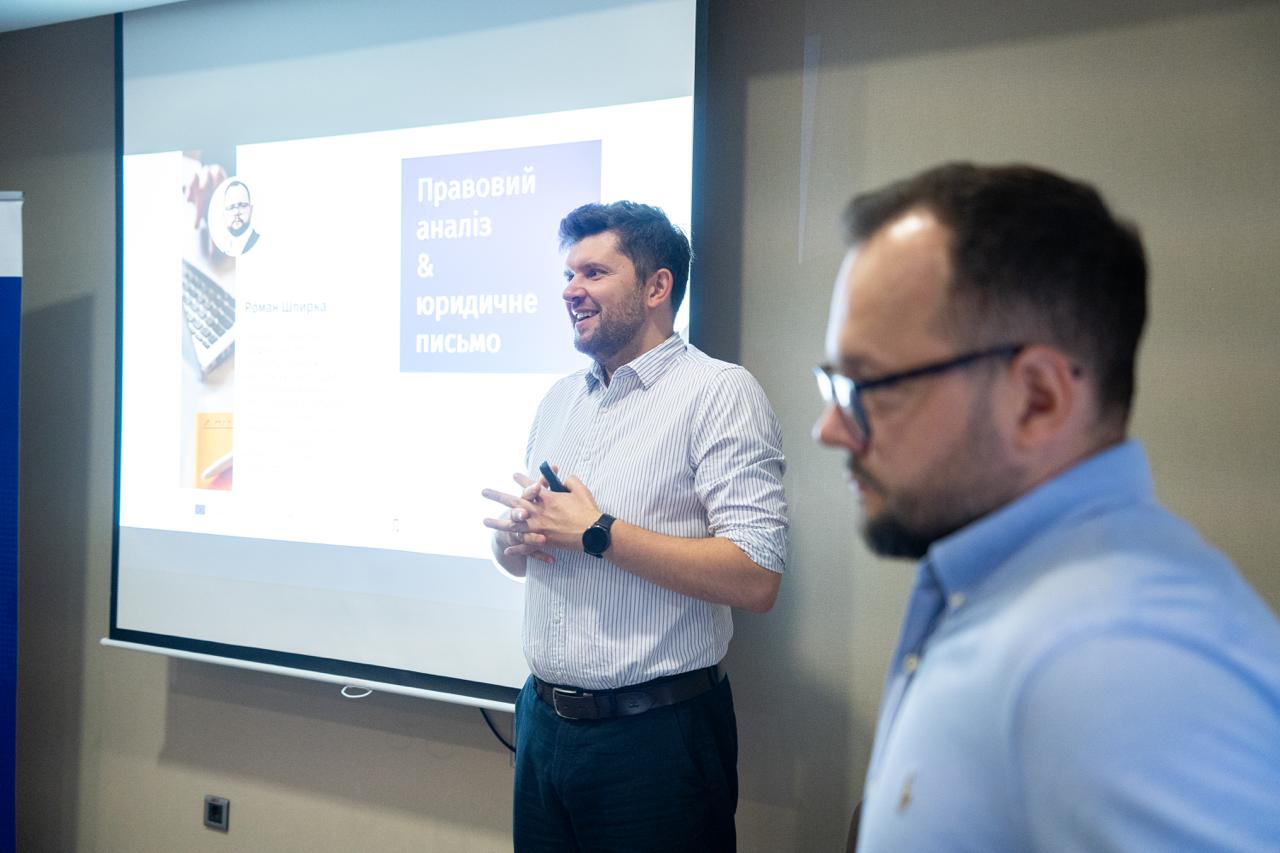Training on Legal Analysis and Writing for Disciplinary Inspectors of the SDI was Held in Kyiv

EU Project Pravo-Justice supported a two-day training - Legal Analysis & Writing - for disciplinary inspectors of the Disciplinary Inspection Service of the High Council of Justice, which took place in the capital on July 31 and August 1.
The training aimed to update, deepen and systematise the participants’ knowledge in the field of legal analysis and writing. Another objective of the training was to strengthen their practical skills in drafting opinions, rulings, decisions, and other documents in disciplinary proceedings against judges.

“Given the role of the Disciplinary Inspection Service in conducting disciplinary proceedings and taking into account the EU integration measures which can only be implemented if the Service operates efficiently, it is important for the Project to build the capacity of the Service. It can be achieved, inter alia, through such training sessions. In fact, the quality of the disciplinary function as such largely depends on the reasoning and structure of disciplinary inspectors’ opinions. Therefore, it is essential to improve drafting skills in this area as it contributes to raising the standards of disciplinary proceedings,” said Volodymyr Chaban, Judicial Reform Component Lead at EU Project Pravo-Justice.
He also thanked the inspectors for their significant work over the past six months, and emphasised the crucial role of the HCJ SDI in ensuring the quality of justice, particularly in the context of European integration commitments undertaken by Ukraine.
The training was delivered by experienced experts:
- Oleh Kyryievskyi, Chair of the Board at NGO HUMAN’S RIGHT, lecturer at the Law School of the Ukrainian Catholic University, managing partner at First Chair Legal;
- Roman Shpyrka, lawyer, managing partner at Solid Partners, advisor to the Prosecutor General (2023–2025).
During the training, participants worked on the principles of writing clear and effective legal texts, learned about typical problems in texts and ways to overcome them, explored the structure of the IRAC method for legal analysis, and worked on real cases. The training specifically focused on editing complex documents and making practical recommendations.

“Consider the specifics of your target audience. Don’t turn your readers into decryption machines,” emphasised Oleh Kyryievskyi, highlighting that it is important to write in a simple and understandable way.
“Smart simplification is the art of making law understandable to the reader without losing its substance. At the training, we learned how to explain complex things in plain language,” said Roman Shpyrka.
At the end of the training, participants received individual assignments based on the recommendations they got during the training. After they complete these assignments, they will get individual feedback from the trainers.
The training made a significant contribution to strengthening the capacity of the Disciplinary Inspection Service of the High Council of Justice and to developing the professional community. These efforts will help improve the quality of the disciplinary process and, ultimately, increase public trust in the judiciary.